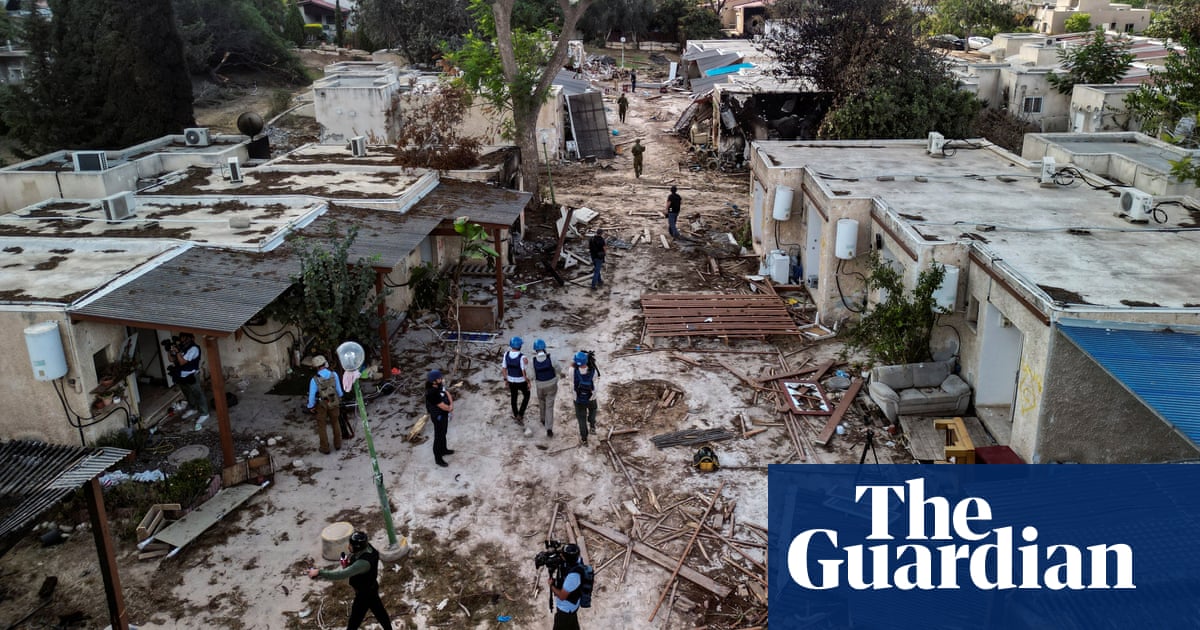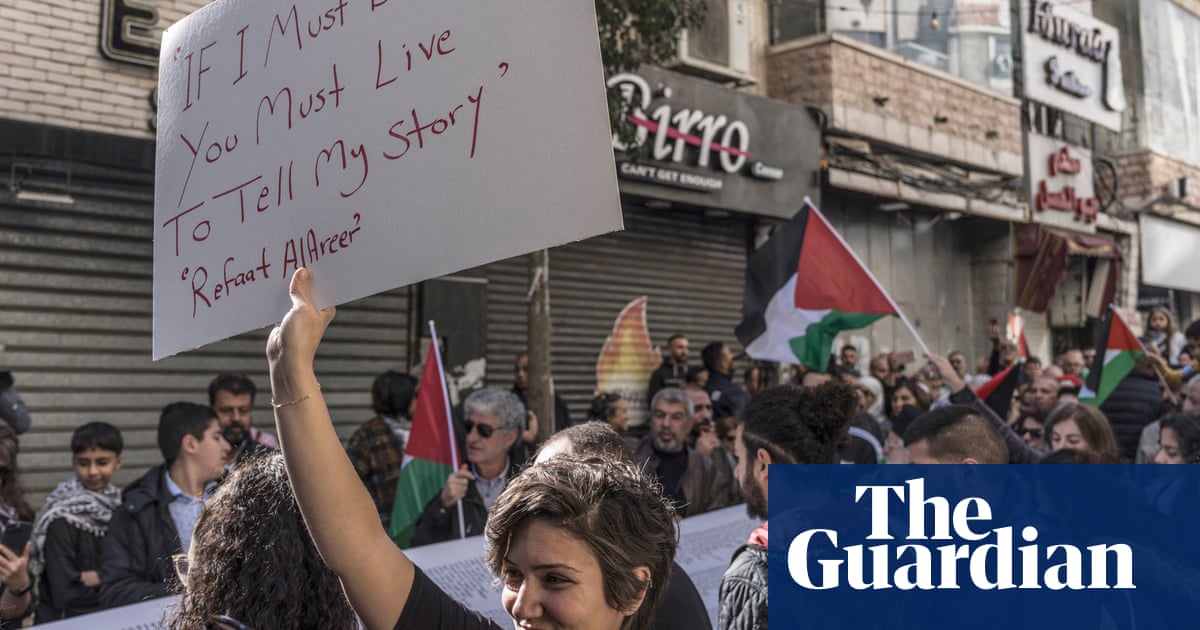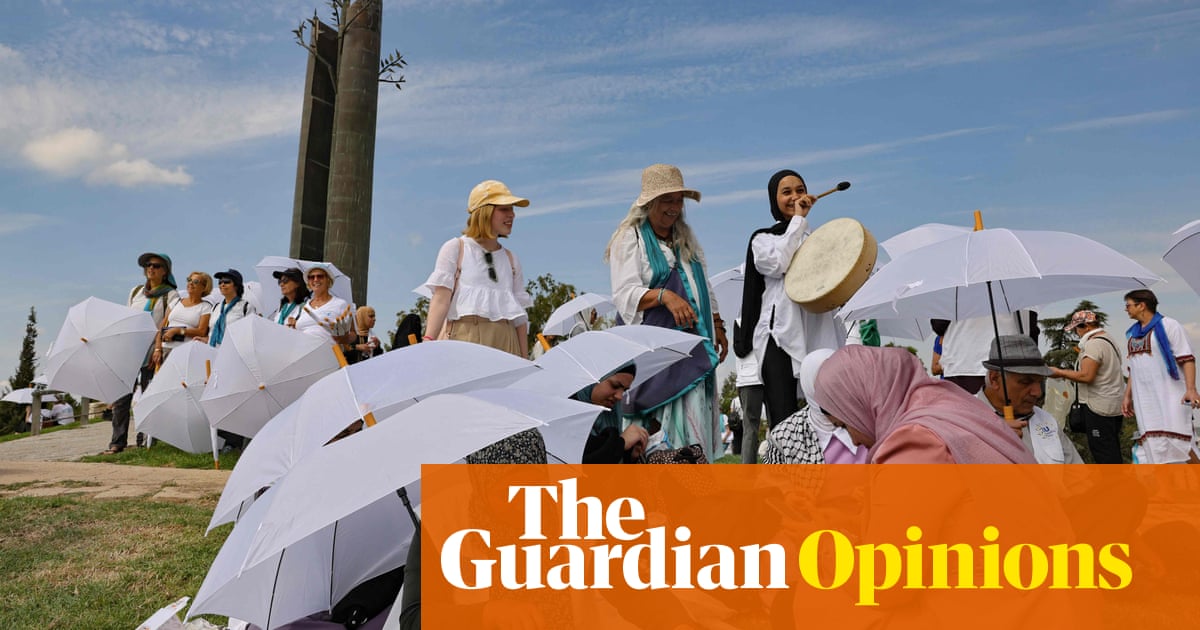
In May 2021, during the last war between Israel and Hamas, the Palestinian militant group that rules the Gaza Strip, the streets of Israel were gripped by a frightening phenomenon not seen in decades: widespread intercommunal violence between the country’s Jewish and Arab citizens.
Homes, businesses, schools, synagogues, mosques and cemeteries were attacked in riots that left at least three people dead. Those memories are still fresh; the amplified distrust between neighbours in towns and cities with mixed populations has not abated.
But since the new wave of violence engulfing the region began on 7 October – when Hamas burst through the Gaza security fence and rampaged through dozens of Israeli communities, killing 1,400, leading Israel to declare a war on the strip that has killed 2,200 – some have found hope in the ability of Jewish and Palestinian citizens of Israel to band together. Thousands of volunteers of different ethnicities are working to help victims of the violence and clean up neglected bomb shelters, amid many other efforts at calming the heightened tensions around the country.
“What is happening right now is fundamentally different to anything we have faced so far, and I think [the week’s events] will probably set us back many years in terms of equality and ending racism,” said Sally Abed, a leader of Standing Together, the largest Arab-Jewish grassroots movement in Israel, from the northern city of Haifa.
“My friend lost her brother. We are also in mourning. It is very hard to be a Palestinian citizen of Israel right now, there is no room for our voices, but we are doing whatever we can to preserve a sense of Israeli-Palestinian solidarity and identifying triggers for incitement and violence before they spiral.”
About 20% of Israel’s 10 million-strong population identifies as Arab, including the Muslim, Christian and Bedouin communities: they face systemic discrimination.
Last Saturday, when Hamas attacked, the militants showed no mercy towards fellow Muslims and Arabs – some of the first deaths reported were four people killed by a rocket fired from the strip that hit a Bedouin village in the Negev desert, unrecognised by the Israeli government and therefore without an air raid system or bomb shelters. Palestinian citizens of Israel responding to the ground offensive, including paramedics, were also killed in the onslaught.
The Negev’s Bedouin tribes were some of the first to organise volunteer teams, made up of 600 people, to search for missing Israelis. “We saw that there was enormous chaos and realised we must do something,” Sleman Shlebe, from the village of Bir Hadaj, told Haaretz.
“We heard about people missing from both the Arab and Jewish communities, and knew that thanks to our exceptional familiarity with the south we could help ... We divided ourselves up in the cars so that there would be people responsible for different things: gathering information, rescuing and administering first aid.”
In Jaffa, a mixed city south of Tel Aviv, activist WhatsApp groups mobilised by nightfall on 7 October to organise a joint Arab-Jewish civil guard, unarmed, that can protect local people of all backgrounds and alert police if violence breaks out. They now number more than 1,000 people. Eritrean asylum seekers in Tel Aviv, often unwelcome in the rest of Israeli society, have been cooking meals for the thousands of displaced people.
Alon-Lee Green, another founder of Standing Together, which has been active since 2017, said the group’s 5,000-strong membership was still bracing for potential unrest. Last Wednesday, at a hospital in Tel HaShomer, dozens of members of La Familia, an ultras group supporting Beitar Jerusalem Football Club, flooded the building after hearing that injured members of Hamas were being treated there. They overwhelmed the security staff and chants of “death to terrorists” quickly became “death to Arabs”, terrifying the hospital’s medics, nearly half of whom are Arab, before police arrived and made three arrests.
“In Arab society in Israel there is still a lot of fear. Everywhere you look, there are calls for revenge, and those calls are coming from the top,” Green said, referring to the rightwing extremists in the prime minister Benjamin Netanyahu’s cabinet.
Itamar Ben-Gvir, Israel’s hardline national security minister, last week ordered 10,000 assault rifles to be distributed among occupied West Bank settlements and to Jews living in cities with mixed Israeli and Palestinian populations, including 4,000 that were distributed immediately.
“There are crazy religious people who actively want to open new fronts in these dangerous times. They are trying to inflame the entire region,” he said. “But what we see at Standing Together are Arabs opening up their homes to people who are displaced, sending food parcels and toys, and working hard to clamp down on incitement online and trying to create a calmer environment.”
Civil society leaders hope lessons were learned during the intercommunal fighting in 2021, and grassroots activists and local municipalities will be more prepared this time around.
“These are not normal times,” Green said.
His comments were echoed by Abed, his colleague in Haifa. “We really hope it won’t escalate here … We are applying everything we learned in 2021. Cleaning up hundreds of bomb shelters has been good for everyone so far, making sure people know where they are and are fit for purpose. That is real community,” she said.
“I hope the solidarity we have built between different communities can endure against such a polarising moment.”












